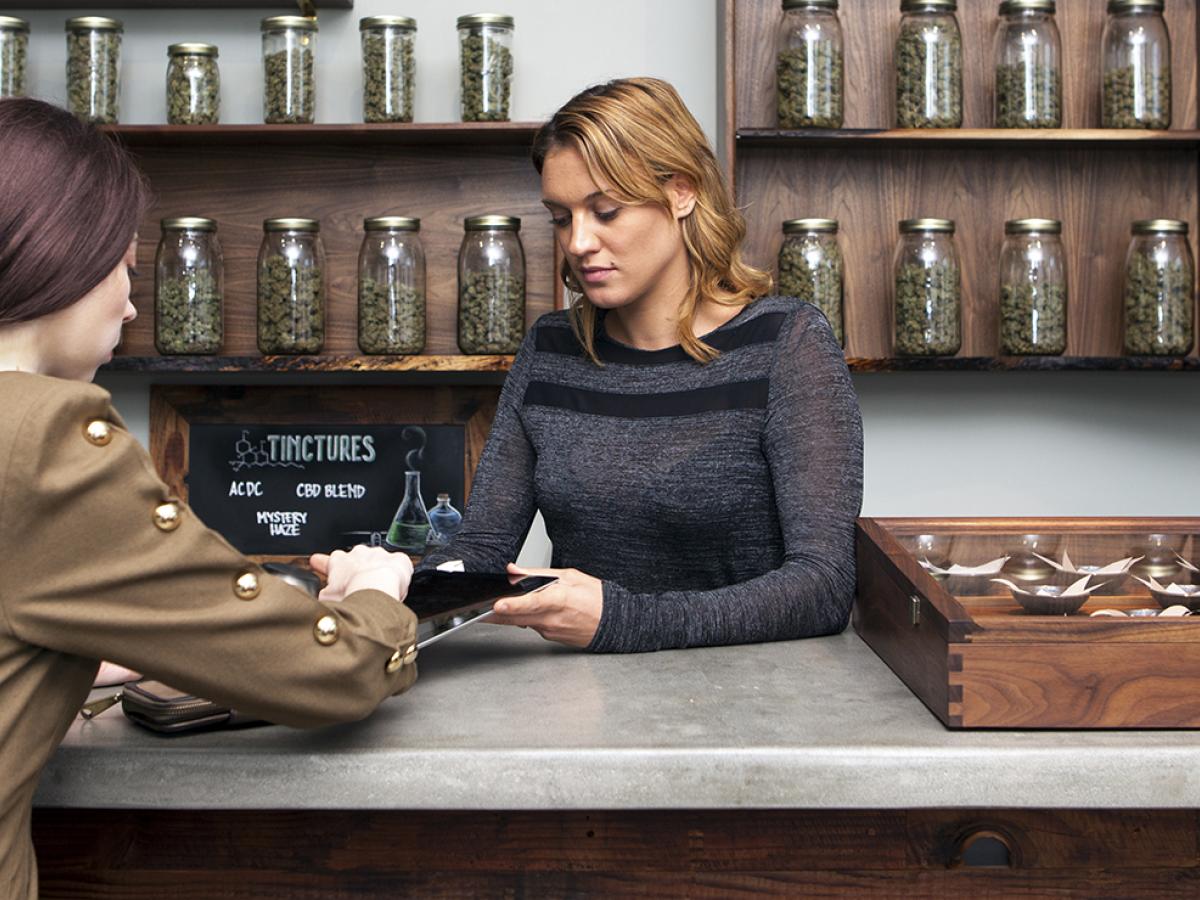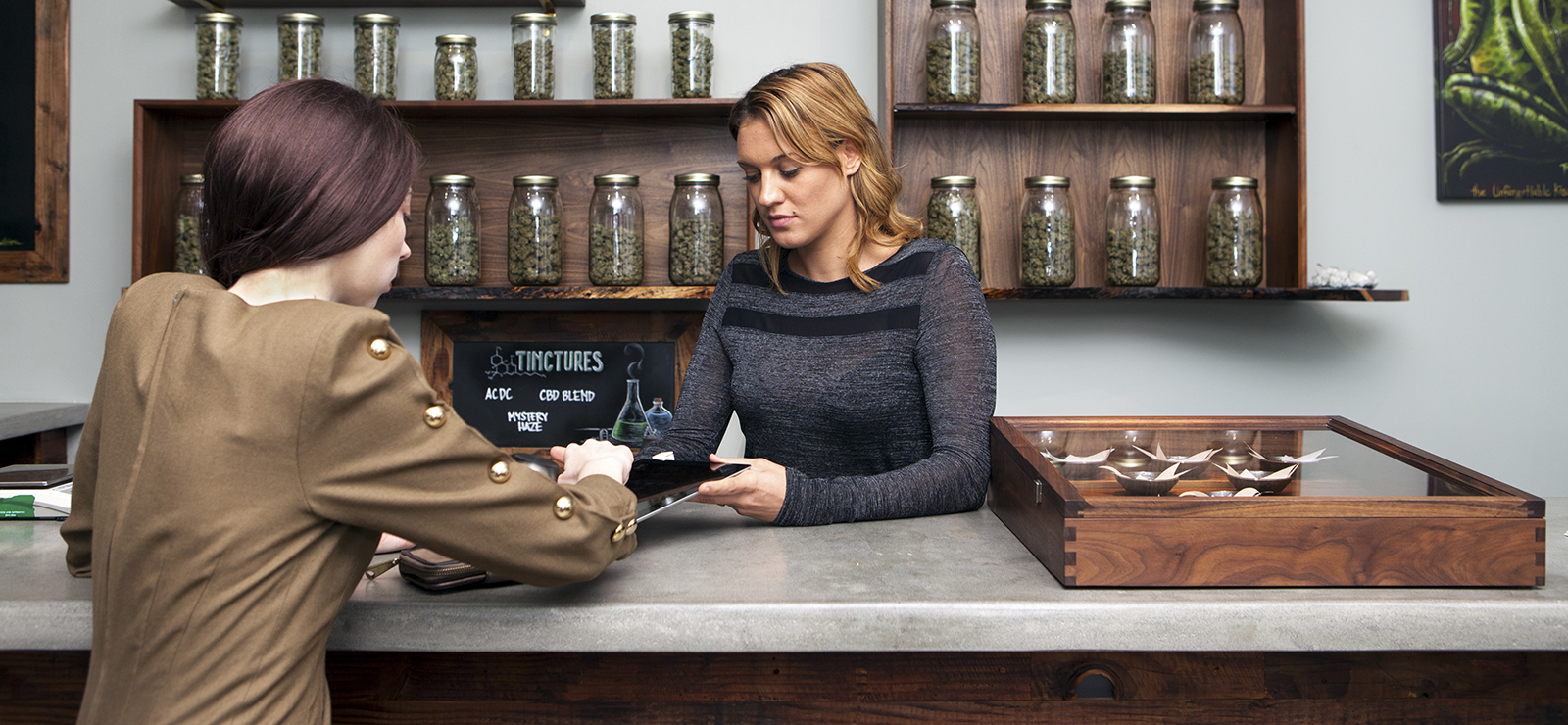April 24, 2023

One in five people with a mood and anxiety disorders will self-medicate with drugs or alcohol at some point in their lifetime. And research shows that self-medication with marijuana, or cannabis, is more common in states that legalize it.
Before you take matters into your own hands and manage your symptoms with marijuana, make sure you have all the available information, says Dr. Lucas Buffaloe, a family medicine doctor at MU Health Care. “Right now, there's a lot of positive messaging around marijuana,” he says. “And I think a lot of that messaging downplays what we don't know about it.”

Whether you have experience with marijuana or are thinking of trying it now that it’s legal, Dr. Buffaloe offers a few facts for you to consider before self-medicating with cannabis.
1. We Still Don’t Know All the Risks, Long-Term Effects and Health Benefits of Using Marijuana
Marijuana is legal for recreational use in 21 states. But it hasn’t been legal for very long and isn’t legal nationwide. So there’s limited clinical evidence available about the health benefits, risks and long-term effects of marijuana.
Some studies have explored potential links to negative side effects, including hyperemesis syndrome (severe bouts of vomiting), impaired coordination, anxiety, suicidal tendencies, lower seizure thresholds and other mental and physical effects. But there is still work to be done to fully understand its risks and impacts.
“Ideally, when we're trying to figure out if a new medication or treatment is helpful, we conduct a large, randomized trial with a big group of patients, and we see how that treatment compares to a placebo,” Dr. Buffaloe says. “With marijuana, we just haven't been able to do that. That may change in the future. But for right now, we're limited in what we know.”
Even without that clinical evidence, people are using marijuana to self-medicate — the most common reasons being chronic pain, anxiety and insomnia. “I think a lot of people are looking for treatments outside of mainstream medicine,” Dr. Buffaloe adds. “But it’s important to remember that with minimal clinical evidence, we can’t definitively say whether it will work or whether it’s recommended for certain patients.”
2. Marijuana Is Stronger Now Than Ever Before
Dr. Buffaloe commonly finds that many patients interested in marijuana for treatment used it when they were younger — often 20 to 30 years ago. And they are often surprised when it affects them differently than they remember.
“The concentrations of the ingredients in marijuana have increased,” Dr. Buffaloe says. “Even a small amount of marijuana today is much more potent than it's been in the past, which can lead to more side effects.”
Research shows that marijuana is much stronger now than it was two to three decades ago —in fact, the potency has tripled since 1994. For those who get prescribed or decide to try marijuana, starting with small doses can help minimize the effects until they are comfortable with the strength and effects.
3. It’s Not Safe to Drive While Using Marijuana
The side effects of marijuana are temporary. But they are strong enough that driving while under the influence is both dangerous and illegal. The side effects may include:
- Dizziness
- Drowsiness
- Loss of memory
- Sedation
“Using marijuana carries some of the same risks as driving under the influence of alcohol,” Dr. Buffaloe says. “You should never drive or operate heavy machinery if you’ve used it.”
4. Marijuana Can Be Addictive
Marijuana is not associated with many long-term risks. But one risk it does carry is addiction — approximately 6% of people in the U.S. are addicted to marijuana.
“Cannabis is not nearly as addictive as other substances that people use, such as heroin or nicotine,” Dr. Buffaloe says. “But there is still a risk that you can become addicted to it.”
In fact, studies show that, depending on your age, being exposed to an additive substance like marijuana can actually make you seven times more likely to develop a substance use disorder later on.
If your marijuana use interferes with your ability to work, exercise or socialize, you may have an addiction. Your primary care provider (PCP) can assess the situation and connect you with resources to help.
5. Inhaling Marijuana Is Different From Ingesting It
There are options for how to use marijuana: Edibles allow you to ingest (eat) it, or you can inhale it by smoking or vaping. The method can determine how marijuana affects you:
- When you inhale marijuana, the effects will begin within 15 minutes and last for an hour or two.
- When you ingest marijuana, you may not feel anything for the first hour or more, but the effects will last for several hours, which can be trickier to manage.
If you have a respiratory condition, such as asthma or chronic obstructive pulmonary disease (COPD), you may want to avoid inhaling marijuana. “Respiratory conditions could potentially be made worse,” Dr. Buffaloe says. “So, for some people, using an edible form of marijuana may be safer.”
6. Marijuana May Not Be Safe if You Take Prescription Medications
If you get cannabis from a state-licensed dispensary, you can assume it meets certain regulatory safety standards. But dispensaries are not like pharmacies — no trained professional is available to spot dangerous drug interactions.
“Marijuana can interfere with prescription drugs, sometimes in harmful ways,” says Dr. Buffaloe. “For instance, it can magnify the effects of the drug itself, especially in medications that cause sedation, increase the impact of negative side effects or even decrease the effectiveness of the drug.”
He strongly encourages patients to talk to their doctor to understand potential interactions before using marijuana.
7. It’s Okay to Talk to Your Doctor About Marijuana
Marijuana was illegal for so long that it may be hard to talk to your doctor about using it recreationally or to self-medicate. But doctors recognize that more and more people are using marijuana for various reasons.
“There's not quite the taboo that there was in the past,” Dr. Buffaloe says. “It's like discussing any other substance use. You regularly talk to your doctor about alcohol or tobacco, and this is just one more substance that we must get comfortable talking about.”
Your PCP knows your medical history and can advise you about safe marijuana use. In most cases, notes Dr. Buffaloe, there are also other options with proven benefits to treat your issue. “If you're considering marijuana to self-medicate, talk with your doctor about your medical problem before using it. See if other kinds of treatments that could be more effective.”
Next Steps and Useful Resources
- Want to speak with primary care provider? Find one today.


